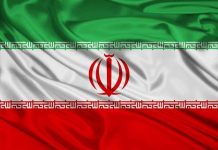DM Monitoring
WASHINGTON: An executive order by US President Donald Trump to suspend resettlement of all refugees, including Afghans, for an indefinite period is being seen as a betrayal of those who supported the International Security Assistance Force (ISAF) and NATO in Afghanistan.
Nearly 1,660 Afghans cleared by the US government to resettle in the US, including family members of active-duty US military personnel, are in limbo since the Trump-led administration took extreme decision.
The order has left them stranded while it is expecting from Pakistan, which has hosted millions of Afghans for decades on humanitarian grounds, to share the burden again. Instead of easing the burden, the US ban has only intensified challenges for Pakistan and other neighbouring host countries.
Furthermore, the western countries, which have been criticising Pakistan for repatriation of illegal immigrants, are refusing to accept refugees by giving lame excuses, abandoning Afghan refugees when they need help the most. The Human Rights Watch (HRW), the Amnesty International and the EU keep an eye on Pakistan’s policies while there is no focus on the hypocrisy being showed by the Western countries by banning refugees after using them as pawns.
The international community must hold the US and EU accountable for their bans and pressure them to contribute fairly to managing the Afghan refugee crisis.
Trump made an immigration crackdown a major promise of his victorious 2024 election campaign, leaving the fate of US refugee programmes up in the air.
The State Department on Wednesday implemented the order, announcing that all refugee arrivals were indefinitely suspended, all previously scheduled travel cancelled and new refugee applications, as well those in process, were suspended.
Earlier, The head of a major humanitarian organisation said US President Donald Trump’s order to halt foreign aid for 90 days would have immediate and disastrous consequences in Afghanistan where relief operations are already stretched thin.
As he took office on Monday, Trump ordered a temporary pause in foreign development aid pending assessments of efficiencies and consistency with his foreign policy. The scope of the order was not clear, including whether it applied to Afghanistan’s humanitarian funding, which is channelled through NGOs and United Nations agencies.
Jan Egeland, the secretary general of the Norwegian Refugee Council, told Reuters that the decision had left agencies reeling as they braced for further cuts from the biggest donor to Afghanistan.
“A 90-day suspension of all aid, no new grants, no new transfer of funding, will have disastrous consequences immediately … for an already starved aid operation for very poor and vulnerable girls and women and civilians in Afghanistan,” he said during a video interview from Kabul late on Tuesday.
The war-torn nation is home to more than 23 million people requiring humanitarian assistance – more than half the country’s population – but aid has shrunk as donors face competing global crises and diplomats raise concerns about the Taliban’s restrictions on women in most areas of public life, including education and health.
Development funding that formed the backbone of government finances was cut after the Taliban took over and foreign forces left in 2021.
Reuters reported last year that non-governmental groups played a critical role in filling the humanitarian void.
“If you go back in time it was a well funded operation, we got development assistance, then we could have perhaps have lived through three months of suspension, we cannot any more,” Egeland said.
Trump told a rally shortly before taking office that aid to Afghanistan would be contingent on getting back billions of dollars of military equipment that US forces left behind.
Egeland said he had raised the issue of female education with Taliban leaders in his four visits to Kabul since they took control of the country. In his last trip he said he told them they must open schools and universities to all girls and women.
“You cannot not educate half your population,” he said.
The Taliban have also banned Afghan women from working at NGOs since 2022, reiterating that position in a second announcement late last year.
Egeland said that in practice his organisation and others were able to work around the restrictions.
But that a lack of funding put that at risk.
“What is not understood in Western capitals is that recently, laying off female staff, laying off girls and women (recipients) is not the Taliban ban … it is the cutting of aid,” he said.




